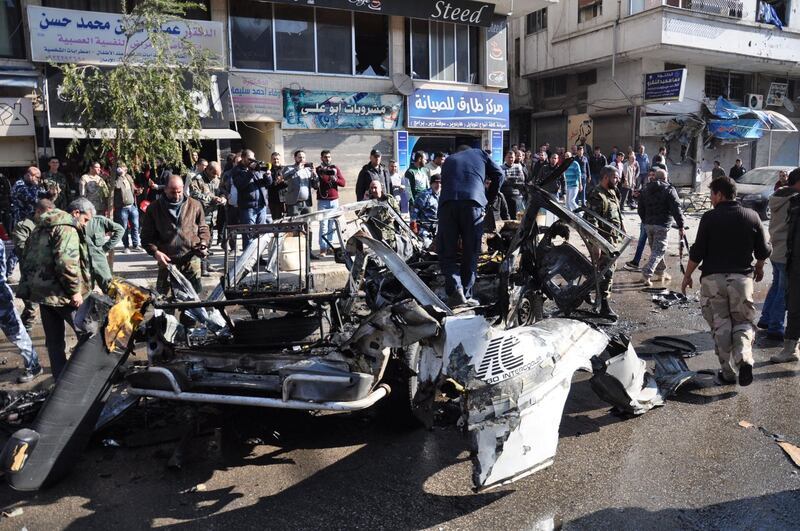The UN special envoy on Syria plans to assess next week whether either side is trying is trying to sabotage the peace talks in Geneva.
“If, God forbid, because it would be very bad news, we draw the conclusion that one of the two sides is actually ... de facto sabotaging the progress and the process of Geneva, that would have a very bad impact on any other political attempt to have processes elsewhere,” Staffan de Mistura said on Thursday during a press conference with Jan Egeland, the UN humanitarian adviser for Syria.
Mr de Mistura's statement comes after the Syrian government said its representatives would return to the negotiations on Sunday, five days late.
Mr de Mistura's adviser, Michael Contet, confirmed that the United Nations had "received notification from the government that its delegation will fly to Geneva on the 10th”.
The government delegation left Geneva on Saturday last week for a weekend break and did not return on Tuesday, the day that Mr de Mistura had set for discussions to resume.
The eighth round of UN-brokered talks between the Syrian government and opposition, which began on Tuesday last week and are set to continue until December 15, have made little progress so far. This is the first time the opposition has sent a unified delegation.
Meanwhile, Mr Egeland urged the regime to allow the immediate evacuation of civilians from the besieged Damascus suburb of eastern Ghouta.
"We are ready, we are waiting on military and government obstacles to be lifted, and this is not happening. We need help," he said.
Mr Egeland pointed said there were 494 cases in desperate need of evacuation. Twelve people had died in the past week while waiting for government permission to be evacuated to nearby hospitals.
"These are innocent civilians, children, they have caused no harm, they have the right to be evacuated and we have an obligation to evacuate them," he said.
____________
Read more:
[ New 'Israeli air strikes' near Damascus - Syrian state media ]
Opinion: What is the price of peace in Syria?
[ Assad regime must be bypassed in rebuilding Syria – report ]
____________
The opposition delegation has remained in Geneva and held several meetings with Mr de Mistura's team, including on Tuesday and Wednesday. They were scheduled to meet the UN team again on Thursday but opposition spokesman Yahya Aridi acknowledged, "It takes two to tango".
On Wednesday, the opposition held talks with the US adviser to Syria, Stephanie Williams.
Nasr Al Hariri, the head of the opposition delegation, stressed the importance of the US' role in pushing the political process forward and the implementation of international resolutions to reach a political solution to the Syrian war.
Mr Al Hariri called on Washington to exert pressure on the UN Security Council to fully implement resolution 2254, which provides for the cessation of hostilities, the introduction of humanitarian aid and the lifting of sieges on cities and towns.
This round of talks was expected to focus on the first "basket" of issues up for negotiation, including what a post-war political transition will look like and the writing of a new constitution. The second basket, which includes post-war elections, is supposed to be discussed at next round of talks.
Mr Al Hariri said the opposition's talks with the UN team in the past two days had focused on the post-war political transition. He said agreement on a full political transition was essential to the stability and security of Syria.
The opposition and government delegations have not held direct talks so far. Last week, Mr de Mistura shuttled between the two negotiating teams, who were installed in separate rooms off the same corridor. He said face-to-face contact was less important than the substance of talks, and that the atmosphere was "professional and serious" on both sides.






